- Home
- Bonnie Bryant
Million-Dollar Horse
Million-Dollar Horse Read online
MILLION-DOLLAR MYSTERY
Max handed the screwdriver to Stevie. He took the horse’s nameplate and lined it up with the screw holes that were already in the stall door. Then he handed Stevie a screw and motioned for her to fasten the nameplate.
She stepped forward and read the new tenant’s name for the first time.
“Honey-Pie?” she asked, astonished.
“That’s right,” said Max.
“That doesn’t sound like a million-dollar horse,” Carole protested. “That sounds like the kind of weird name an old lady would give her puppy!”
“Now you’re getting warmer,” said Max mysteriously, handing Stevie the second screw. He didn’t say another word to the girls while Stevie finished fastening the nameplate to the door. He just smiled, took the screwdriver from Stevie, and walked back to his office, clearly enjoying every minute of his mystery.
“I’ll be here on Monday,” Lisa declared.
“I wouldn’t miss it for … for—well, a million bucks,” Stevie agreed.
“We’ll all be here on Monday to welcome, um, Honey-Pie”—the sickly sweet name didn’t come easily to Carole’s lips—“to its … his … her new home.”
RL 5, ages 009–012
MILLION-DOLLAR HORSE
A Bantam Skylark Book / May 2000
“The Saddle Club” is a registered trademark of Bonnie Bryant Hiller. The Saddle Club design/logo, which consists of a riding crop and a riding hat, is a trademark of Bantam Books.
“USPC” and “Pony Club” are registered trademarks of The United States Pony Clubs, Inc., at The Kentucky Horse Park, 4071 Iron Works Pike, Lexington, KY 40511–8462.
All rights reserved.
Text copyright © 2000 by Bonnie Bryant.
No part of this book may be reproduced or transmitted in any form or by any means, electronic or mechanical, including photocopying, recording, or by any information storage and retrieval system, without permission in writing from the publisher. For information address: Bantam Books.
eISBN: 978-0-307-82597-1
Visit us on the Web! www.randomhouse.com/kids
Educators and librarians, for a variety of teaching tools, visit us at
www.randomhouse.com/teachers
Published simultaneously in the United States and Canada
Bantam Skylark is an imprint of Random House Children’s Books, a division of Random House, Inc. SKYLARK BOOK and colophon and BANTAM BOOKS and colophon are registered trademarks of Random House, Inc. Bantam Books, 1540 Broadway, New York, New York 10036.
v3.1
Special thanks to Laura Roper of Sir “B” Farms
With many thanks, for many things,
this book is dedicated to Sandra Jordan.
Contents
Cover
Title Page
Copyright
Acknowledgments
Dedication
Chapter 1
Chapter 2
Chapter 3
Chapter 4
Chapter 5
Chapter 6
Chapter 7
Chapter 8
Chapter 9
Chapter 10
Chapter 11
Chapter 12
Chapter 13
Chapter 14
About the Author
“LOOK AT THIS!” Stevie Lake said, pointing to a small picture in a large catalog. Her two best friends, Carole Hanson and Lisa Atwood, leaned over the page to see what had caught her interest.
“Isn’t that the cutest?” Stevie’s finger rested on a picture of a pink horse blanket with lace on the edge.
“Cute, but not practical,” Carole said. “I mean, lace? In a stable? And pink? It would get dirty in an instant.”
“I didn’t mean I wanted to buy it,” Stevie said. “I just meant it was cute.”
“It is,” Lisa agreed. “But I’ve never thought that pink was Belle’s color. I’ve always thought she looked best in winter tones.”
The three girls smiled, amused at the idea that a horse had any fashion sense or color preferences. Stevie sighed and turned the page. There she found a wide selection of very sensible horse blankets in very sensible colors, like dark brown, dark green, dark blue, and gray.
“That’s more like it,” she said.
“And almost exactly as affordable,” Carole said, noticing the prices.
“It doesn’t cost anything to look,” Stevie said, letting her eyes wander across the page to the beginning of the tack trunk section. “And besides, Belle doesn’t even need a new blanket.”
“Not needing something for our horses never kept us from window-shopping before,” said Lisa.
“But this is different. In this case, not spending money may cost some horse its life,” Carole reminded her friends somberly.
The three of them were sitting in the total comfort of the tack room at Pine Hollow Stables. It wasn’t that the seats were all that comfortable. Lisa was perched on an overturned bucket, while Carole and Stevie lounged against stacked hay bales. It was that being in and around Pine Hollow was always comfortable for this threesome. It was their favorite place because it meant they were doing their favorite thing: anything to do with horses.
The three girls, so different in so many ways, had one gigantic thing in common: They were all horse-crazy. In fact, they were all so horse-crazy that they’d formed their own club, The Saddle Club. It had only two rules. The first was the easiest: All members had to be horse-crazy. The other wasn’t so easy: It required them to help one another out whenever they needed it.
Often that meant Carole and Lisa had to help bail Stevie out of some trouble that her irrepressibly mischievous nature had lured her into. Stevie had an active imagination and a weird sense of humor. That pairing often got her in hot water. Fortunately, she was almost as clever at getting out of hot water as she was at getting into it. And that was where her friends came in—they always ended up helping her.
Lisa was the center of common sense in the group. She was a straight-A student who approached problems with cool logic—a useful counterbalance to Stevie’s wild schemes and imagination. Stevie didn’t have any of Lisa’s organizational skills. For example, Stevie’s idea of a nice outfit usually consisted of anything she hadn’t had to pull out of the laundry pile, which often led to “interesting” color combinations with flying shirttails and clashing patterns. Lisa, however, always looked neat and tidy, perfectly matched and pressed. Their different approaches extended to other areas as well. While Stevie might begin a project and lose interest a third of the way into it, Lisa would pull through until the end.
Carole, on the other hand, might forget what the project was—unless it had to do with horses. When it came to her favorite subject, Carole never forgot anything. She might forget to comb her hair in the morning, but she’d never forget to comb her horse’s mane or give him a grooming after a ride. She might forget to eat lunch, but she’d never forget to give Starlight his rations and fresh water.
Carole, whose mother had died of cancer a few years before, lived with her father, a colonel in the Marines, in a house on the edge of the town of Willow Creek, Virginia, where Pine Hollow Stables was. Stevie and Lisa both lived within walking distance of the stables. Lisa lived with her parents. She had an older brother, Peter, but he was living and studying in Europe, so she was almost an only child like Carole.
Stevie, on the other hand, frequently declared that she lived in a circus, and her friends enjoyed the relatively raucous atmosphere of the Lake household when they visited. Stevie had three brothers—one older, one younger, and one twin, and as the only girl, she often felt it fell to her to uphold the honor of womanhood. She did this by playing more practical jokes on her brothers than th
ey played on her. It was a tough job, but somebody had to do it, and Stevie Lake was born for it. As a result, she spent a lot of time relinquishing her allowance to her parents or scraping gum off the undersides of desks at school, depending on where the punishment was delivered.
In spite of their differences, the common ground of horses drew Stevie, Lisa, and Carole together and kept them together. Saturday was almost invariably their favorite day, since they could devote almost the entire day to horses. It began with a Pony Club meeting, followed by a riding class. They usually followed that up with some stable chores and ended the day with a leisurely visit to the local ice cream parlor, where they usually talked about their favorite subject: horses.
The girls were devoted to horses, but they were also devoted to one another and would do anything to help one another out, so even the potentially onerous Rule Two of The Saddle Club was no problem for them, and they sometimes applied it to others. In other words, when someone else needed their help, they’d pitch in as a team. They thought of that as a Saddle Club project.
Sitting around in the tack room on that Saturday morning, they hatched just such a project.
“Judy Barker is the greatest, isn’t she?” Lisa asked.
Stevie and Carole agreed. Judy was Pine Hollow’s vet. She had just given a talk to Horse Wise, their Pony Club, as she often did. She’d discussed seasonal changes in feed, which the young riders all thought was very interesting; but they’d been even more interested in the other news Judy had for them.
Judy, who worked exclusively with horses, did volunteer work for CARL, the County Animal Rescue League, whenever CARL had a sick horse.
“I always prefer to treat a horse in its own home,” Judy had told the group that morning. “They heal better in familiar surroundings, but sometimes the surroundings are the problem.” The young riders knew what she meant. A horse might be abused and need to be taken away from its owner. Or an owner might have an inadequate home for a horse, for example, one that provided no shelter, and then the horse would have to be removed. Judy told the story of one owner who had died, leaving nothing behind but a horse and nobody to care for it.
“In all these cases, the horses had to be removed and taken to CARL. And every single time, CARL has had to borrow a trailer from someone. Well, it’s time for CARL to have its own horse trailer. And we can do it—with your help.
“The Cross County Tack Shop has offered us a used trailer. It’s a one-horse trailer, nothing special, but more than adequate for CARL’s needs. The price is five hundred dollars, and they’ve promised that ten percent of everything our volunteers sell out of their catalog will go toward the purchase of the van. I’ve got a copy of the catalog for each of you. Now, you may not need anything—though I’ve never known a rider who didn’t want to buy almost everything in the CC Tack Catalog—but if you do, go ahead and buy it from Cross County and get your friends, your neighbors, and even utter strangers to do the same, will you?”
They promised they would. This was a great deal for CARL and it wouldn’t cost anybody a penny. All they had to do was find someone who wanted to spend five thousand dollars at the tack shop.
“Look, here’s a saddle that would do the whole thing! Just one buyer and CARL will have its trailer!” Stevie said. She pointed to her latest catalog discovery.
“If you’re a rhinestone cowboy,” said Lisa.
“And if any self-respecting horse would wear the thing,” Carole said.
Stevie had to agree. The saddle in question was a specialized item for dress rodeo wear—large, heavy, and showy, studded with sterling silver—hardly the kind of saddle Stevie and her English-riding friends would need. Besides, they all had perfectly good saddles—none of which cost anywhere near five thousand dollars.
“Here’s something I want,” Carole announced. “And I’m going to order it right this second.”
Stevie looked over Carole’s shoulder. “Great! I’m trying to find a buyer for a five-thousand-dollar saddle and Carole picks out a halter for four dollars.”
“The longest journey begins with a single step,” Lisa said philosophically.
“Sure,” Stevie agreed. “I was just hoping the step might be bigger than the forty cents that’ll earn toward CARL’s trailer.”
Carole tugged the order form out of the catalog and began filling in the blanks.
“Oh, it’s you,” a familiar voice greeted them.
Lisa was the only one who looked up, being too polite to ignore even the most unwelcome greeting.
“Yes, Veronica,” she said. “Hello to you, too.”
Veronica diAngelo was also a rider at Pine Hollow, a member of their Pony Club, and a classmate of Stevie’s at Fenton Hall, a private school in Willow Creek. That was where Veronica’s common ground with The Saddle Club stopped. She was the richest, snootiest girl any of them had ever had the burden of meeting. She considered herself way too good to hang around with the likes of The Saddle Club. She rode only purebred horses, and she talked only with purebred girls. She considered herself too good to do such common tasks as look after her own horse, clean her own tack, or help anyone else do anything. Her usual way of caring for her Thoroughbred, Danny, was to complain about the way Red, Pine Hollow’s head stable hand, did her work.
The Saddle Club didn’t have much time for Veronica and generally tried to avoid her. But if there was one thing of which Veronica seemed to have an endless supply, it was money.
“We’re just looking through the Cross County catalog,” Lisa said. “Have you seen all the neat things they have? Isn’t it great that if we buy things from them we can help earn the money for CARL’s new trailer?”
“Oh,” said Veronica, as if she hadn’t been there for Judy’s presentation.
“You’re going to buy something, aren’t you?” Lisa persisted.
“From Cross County?” Veronica asked, wrinkling her nose as if she smelled something bad. Lisa was undeterred.
“Stevie saw a really nice saddle.…”
“As you already know, I have all my saddles made for me,” Veronica said.
“Oh, right, but how about other things, like a blanket, or … I noticed a scratch on Danny’s tack trunk—”
“I’m having that refinished,” Veronica told her. “And Danny’s new blanket is coming from Scotland this week.”
“But what about CARL?” Lisa asked. “Don’t you want to help?”
“Why should I?” Veronica asked with a genuinely puzzled look on her face. “I mean, those horses are really just worthless animals, aren’t they? I don’t understand what all the fuss is about.”
Not for the first time, The Saddle Club was struck dumb by the depth of Veronica’s insensitivity. None of them could think of a thing to say while Veronica finished selecting a lead rope from the overhead rack and then left.
They were still sitting in stunned silence when Max Regnery, the owner of Pine Hollow, came into the tack room.
“Oh, good, I’m so glad you’re still here. I’ve got a little job for you,” he said.
“I knew we should have left for TD’s already,” Stevie said. TD’s was the ice cream shop.
“Oh, this won’t take long,” Max said, a twinkle in his eye.
“Oops,” said Carole, thinking Stevie was right. Max’s idea of a little chore sometimes took up a whole afternoon. Still, although the girls might complain about it, they knew that the work they did around the stable was important. It was important for the horses, but it was important for them as well. All the riders were expected to pitch in, and that was one of the most important ways Pine Hollow kept its costs down.
“Okay, so where’s the moving van full of hay we have to unload?” Carole teased.
“Or the fifty-foot manure pile we have to move?” Stevie asked.
“Or the trunk full of tack that we should be able to see our faces in by the time we leave?” Lisa added.
“Follow me,” Max said. “Oh, and bring along some pitchforks and a wheelba
rrow.”
“So what else is new?” Stevie said, stuffing the Cross County catalog into her back pocket.
“I THOUGHT WE already mucked out all the stalls,” Stevie protested while she pushed the wheelbarrow down the aisle after Max.
“You did,” he said.
“And?”
“Right this way, ladies,” Max said, turning one corner of the U-shaped stable. He stopped at the large corner box stall.
“The foaling stall?” Carole said. “Are we going to have a new baby in the house?”
“Nope,” Max said. He unlatched the gate for them and they entered the extra-large box stall.
Although Pine Hollow was primarily for riders, both owners and renters, Max had expanded into breeding a while back when he’d acquired a valuable stallion named Geronimo. It was the usual practice to have mares who were about to foal come to the stable to have their little ones. Soon after the birth, they could be bred again, so it made sense to have them near the stallion at that time. The girls had enjoyed helping out with more than one foaling. Apparently, though, this wasn’t why they were cleaning the stall.
The stall wasn’t really dirty. It had been cleaned out after the last resident had left a few months earlier. But if a new horse was going to live there, the stall needed a good sweeping and some fresh shavings.
“So, tell us about the new visitor,” Carole said, now very curious.
“Resident,” Max corrected her. “This horse is arriving Monday afternoon and will be living here permanently.”
“In the foaling stall?” Lisa asked.
“For now,” Max said. “Eventually, we may build an extension.”
“An extension for just one animal? This must be a valuable horse,” Stevie said.
“In a way,” Max said. “A very real way. In fact, I guess you’d say it was a million-dollar horse.”
“A million bucks?” Stevie said, her jaw dropping.
“A million dollars?” Veronica echoed. She’d just been passing by, but the words million and dollars in one sentence would always be enough to catch her attention.

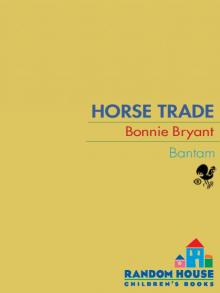 Horse Trade
Horse Trade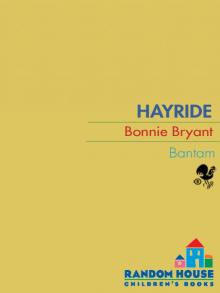 Hayride
Hayride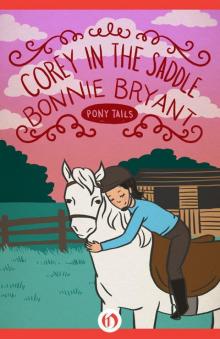 Pony Tails 06- Corey in the Saddle
Pony Tails 06- Corey in the Saddle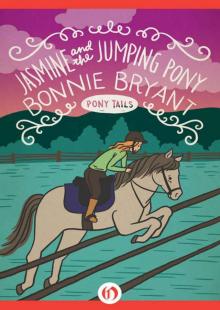 Jasmine and the Jumping Pony (Pony Tails Book 16)
Jasmine and the Jumping Pony (Pony Tails Book 16)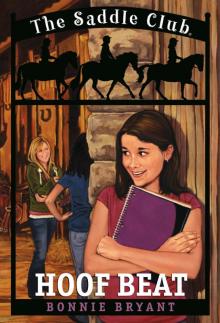 Hoof Beat
Hoof Beat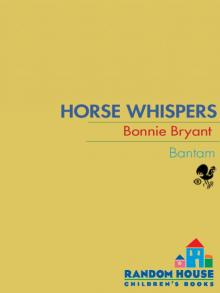 Horse Whispers
Horse Whispers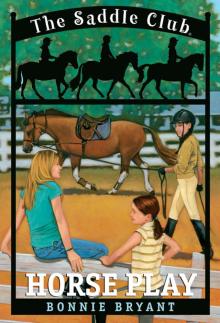 Horse Play
Horse Play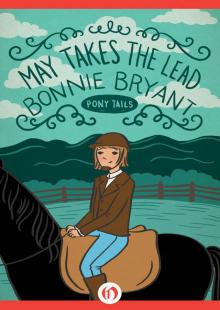 Pony Tails 05- May Takes the Lead
Pony Tails 05- May Takes the Lead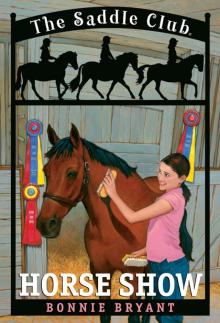 Horse Show
Horse Show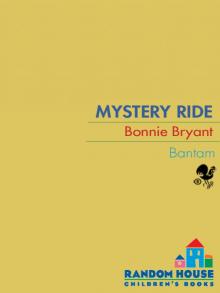 Mystery Ride
Mystery Ride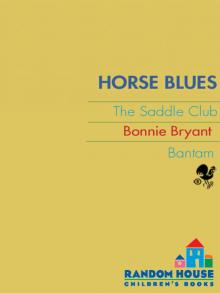 Horse Blues
Horse Blues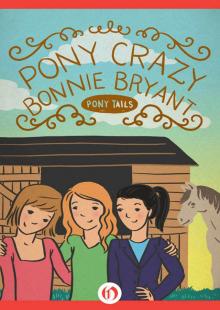 Pony Tails 01- Pony Crazy
Pony Tails 01- Pony Crazy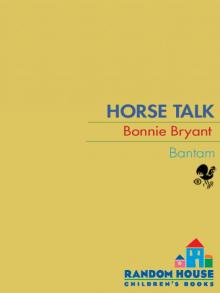 Horse Talk
Horse Talk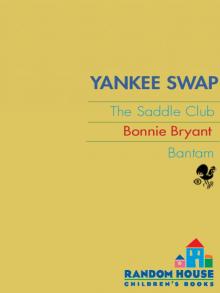 Yankee Swap
Yankee Swap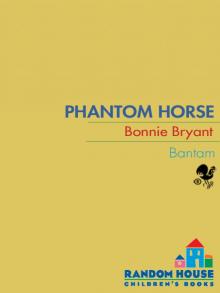 Phantom Horse
Phantom Horse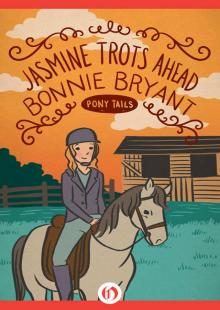 Pony Tails 07- Jasmine Trots Ahead
Pony Tails 07- Jasmine Trots Ahead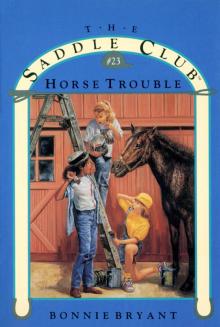 Horse Trouble
Horse Trouble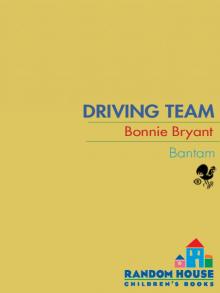 Driving Team
Driving Team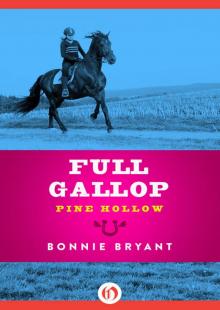 Full Gallop
Full Gallop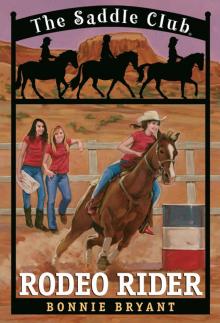 Rodeo Rider
Rodeo Rider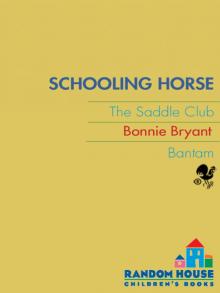 Schooling Horse
Schooling Horse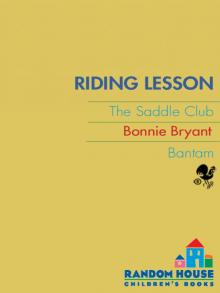 Riding Lesson
Riding Lesson Million-Dollar Horse
Million-Dollar Horse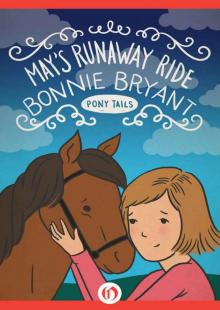 May's Runaway Ride (Pony Tails Book 14)
May's Runaway Ride (Pony Tails Book 14)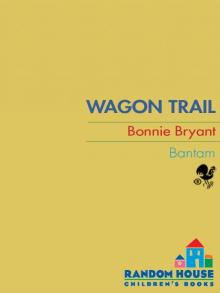 Wagon Trail
Wagon Trail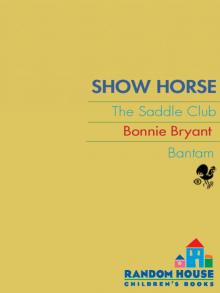 Show Horse
Show Horse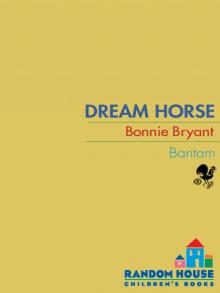 Dream Horse
Dream Horse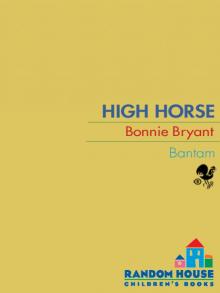 High Horse
High Horse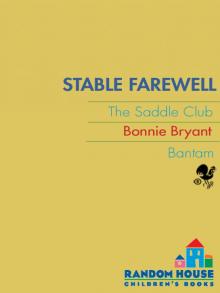 Stable Farewell
Stable Farewell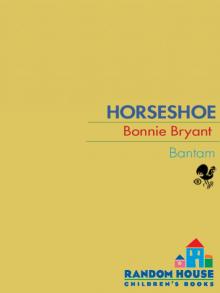 Horseshoe
Horseshoe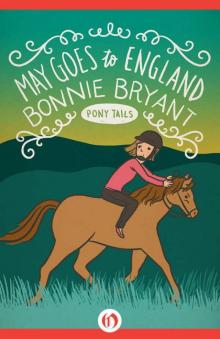 May Goes to England (Pony Tails Book 11)
May Goes to England (Pony Tails Book 11)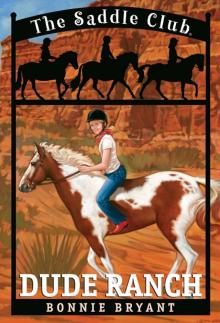 Dude Ranch
Dude Ranch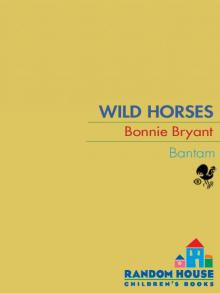 Wild Horse
Wild Horse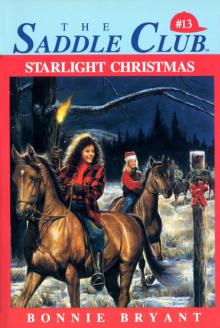 Starlight Christmas
Starlight Christmas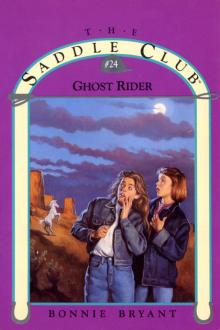 Ghost Rider
Ghost Rider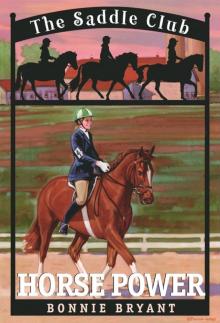 Horse Power
Horse Power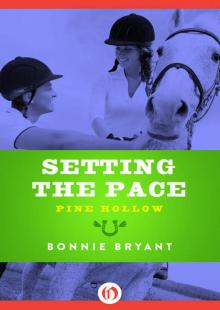 Setting the Pace
Setting the Pace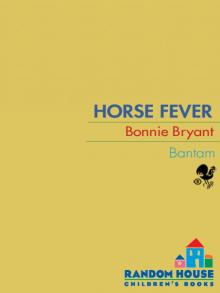 Horse Fever
Horse Fever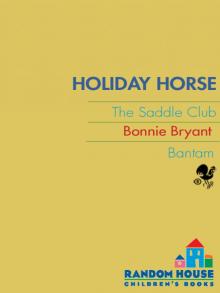 Holiday Horse
Holiday Horse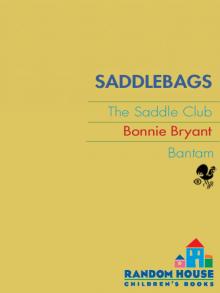 Saddlebags
Saddlebags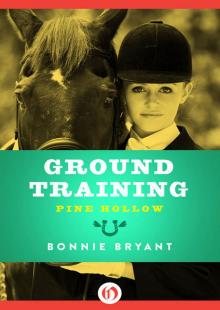 Ground Training
Ground Training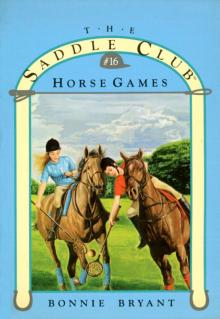 Horse Games
Horse Games Endurance Ride
Endurance Ride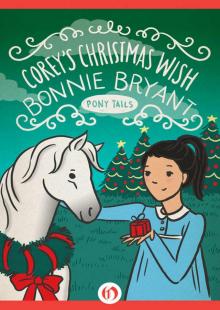 Pony Tails 15- Corey's Christmas Wish
Pony Tails 15- Corey's Christmas Wish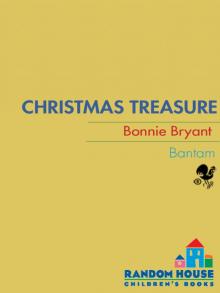 Christmas Treasure
Christmas Treasure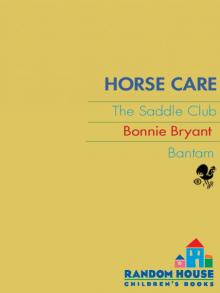 Horse Care
Horse Care Stagecoach
Stagecoach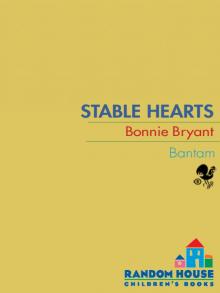 Stable Hearts
Stable Hearts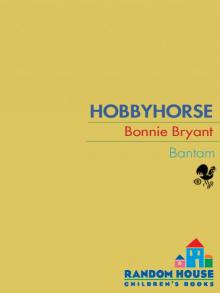 Hobbyhorse
Hobbyhorse Penalty Points
Penalty Points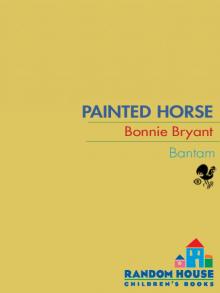 The Painted Horse
The Painted Horse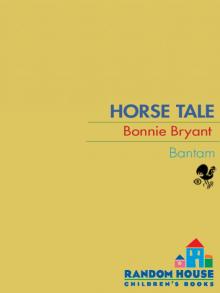 Horse Tale
Horse Tale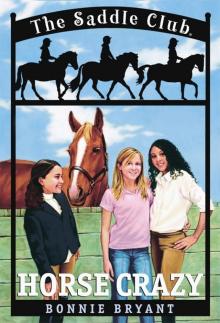 Horse Crazy
Horse Crazy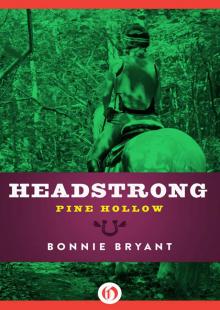 Headstrong
Headstrong English Rider
English Rider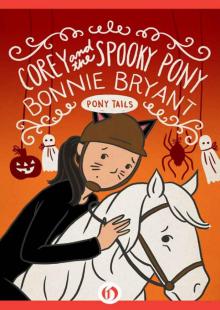 Corey and the Spooky Pony (Pony Tails Book 9)
Corey and the Spooky Pony (Pony Tails Book 9)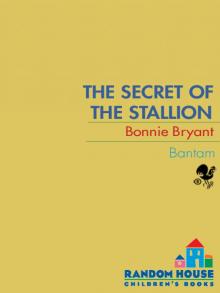 Secret of the Stallion
Secret of the Stallion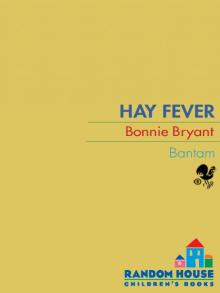 Hay Fever
Hay Fever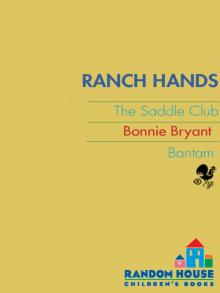 Ranch Hands
Ranch Hands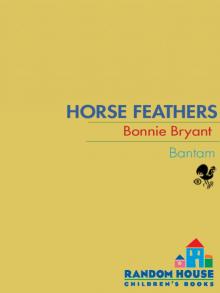 Horse Feathers
Horse Feathers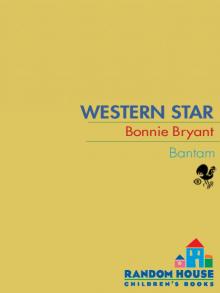 Western Star
Western Star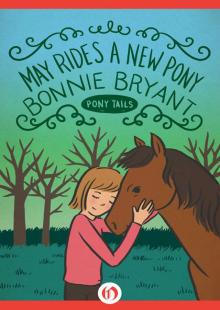 Pony Tails 08- May Rides a New Pony
Pony Tails 08- May Rides a New Pony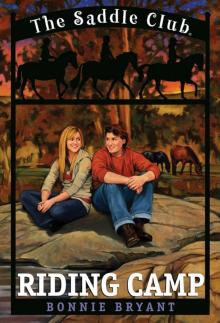 Riding Camp
Riding Camp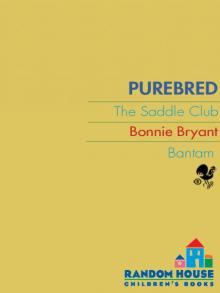 Purebred
Purebred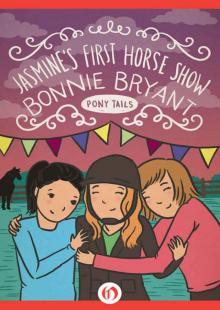 Jasmine's First Horse Show (Pony Tails Book 13)
Jasmine's First Horse Show (Pony Tails Book 13)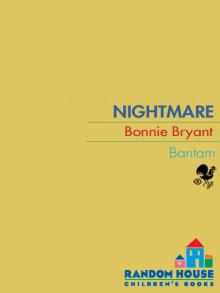 Nightmare
Nightmare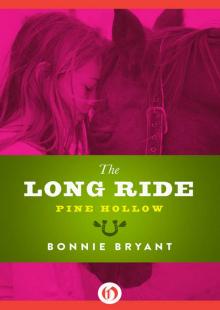 The Long Ride
The Long Ride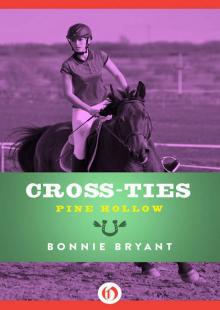 Cross-Ties
Cross-Ties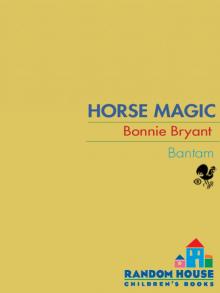 Horse Magic
Horse Magic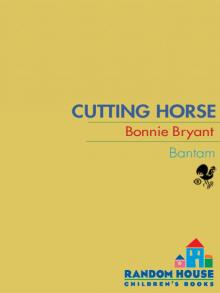 Cutting Horse
Cutting Horse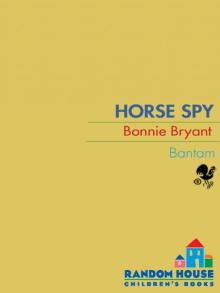 Horse Spy
Horse Spy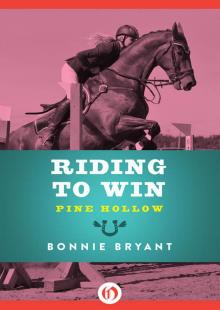 Riding to Win
Riding to Win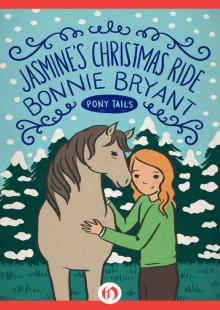 Pony Tails 04- Jasmine's Christmas Ride
Pony Tails 04- Jasmine's Christmas Ride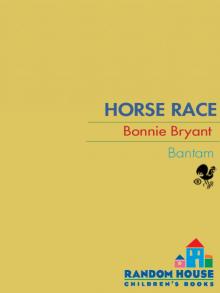 Horse Race
Horse Race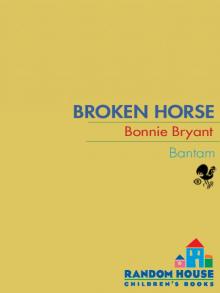 Broken Horse
Broken Horse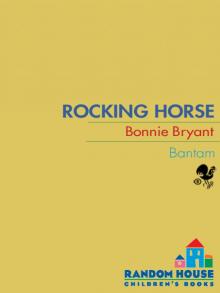 Rocking Horse
Rocking Horse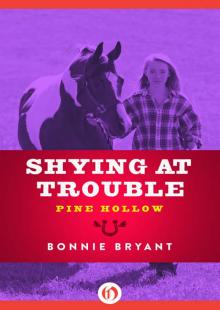 Shying at Trouble
Shying at Trouble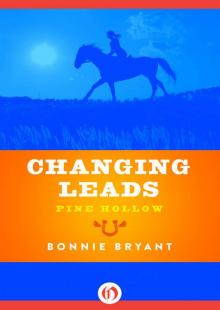 Changing Leads
Changing Leads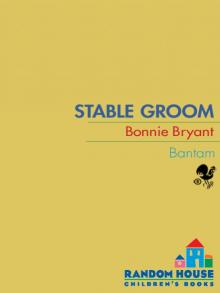 Stable Groom
Stable Groom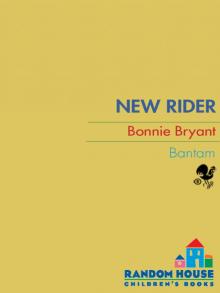 New Rider
New Rider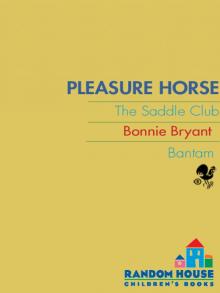 Pleasure Horse
Pleasure Horse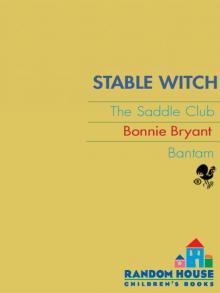 Stable Witch
Stable Witch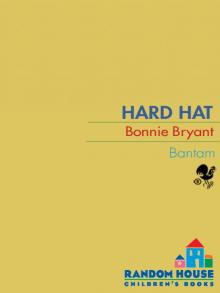 Hard Hat
Hard Hat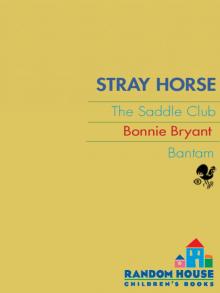 Stray Horse
Stray Horse High Stakes
High Stakes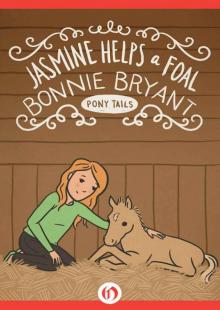 Jasmine Helps a Foal (Pony Tails Book 10)
Jasmine Helps a Foal (Pony Tails Book 10)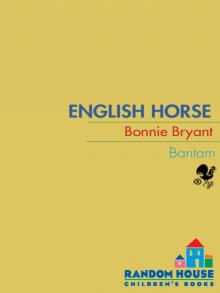 English Horse
English Horse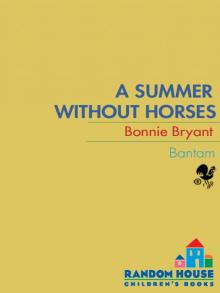 A Summer Without Horses
A Summer Without Horses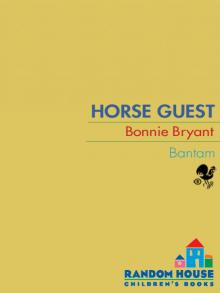 Horse Guest
Horse Guest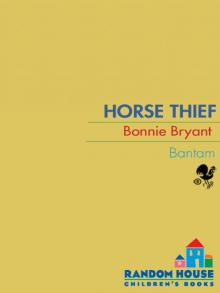 Horse Thief
Horse Thief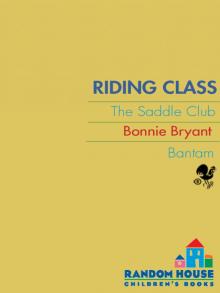 Riding Class
Riding Class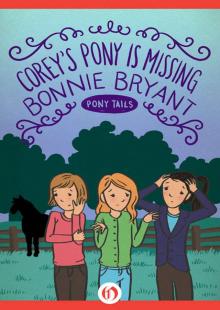 Pony Tails 03- Corey's Pony Is Missing
Pony Tails 03- Corey's Pony Is Missing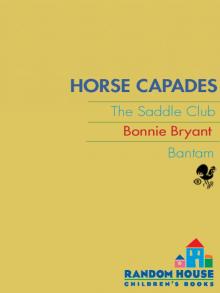 Horse Capades
Horse Capades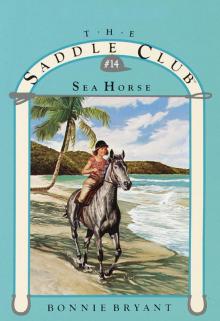 Sea Horse
Sea Horse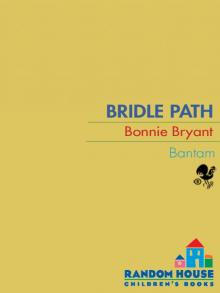 Bridle Path
Bridle Path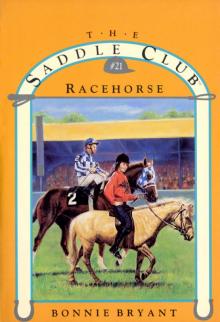 Racehorse
Racehorse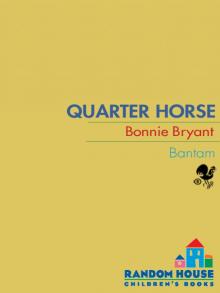 Quarter Horse
Quarter Horse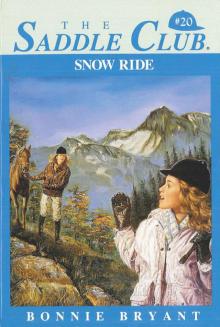 Snow Ride
Snow Ride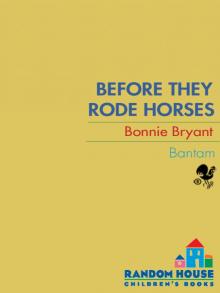 Before They Rode Horses
Before They Rode Horses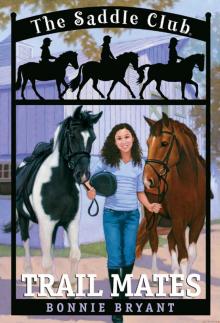 Trail Mates
Trail Mates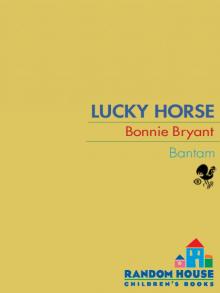 Lucky Horse
Lucky Horse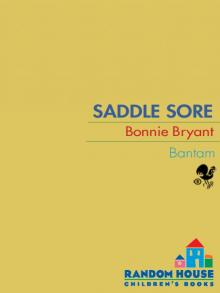 Saddle Sore
Saddle Sore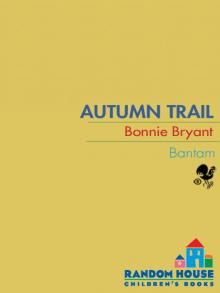 Autumn Trail
Autumn Trail Lisa
Lisa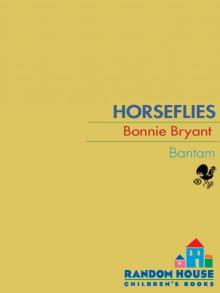 Horseflies
Horseflies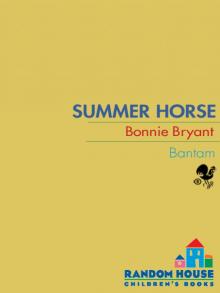 Summer Horse
Summer Horse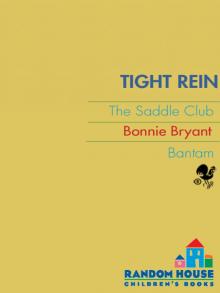 Tight Rein
Tight Rein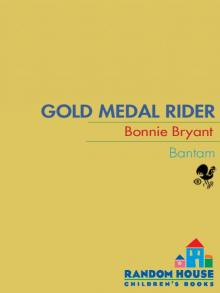 Gold Medal Rider
Gold Medal Rider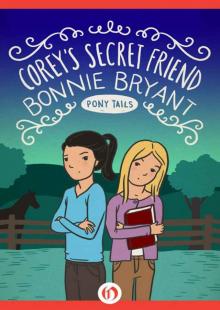 Corey's Secret Friend (Pony Tails Book 12)
Corey's Secret Friend (Pony Tails Book 12)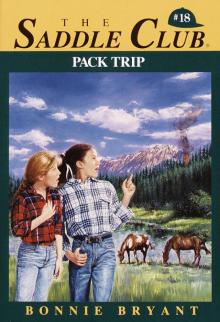 Pack Trip
Pack Trip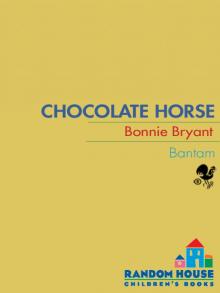 Chocolate Horse
Chocolate Horse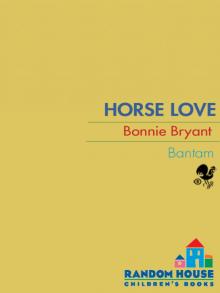 Horse Love
Horse Love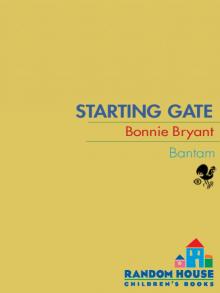 Starting Gate
Starting Gate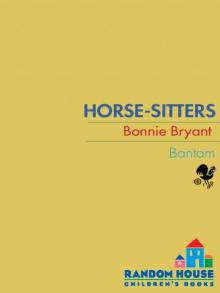 Horse-Sitters
Horse-Sitters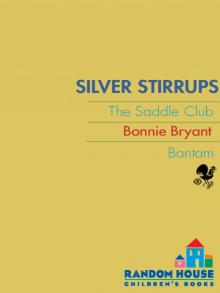 Silver Stirrups
Silver Stirrups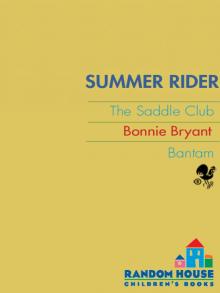 Summer Rider
Summer Rider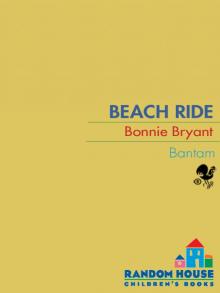 Beach Ride
Beach Ride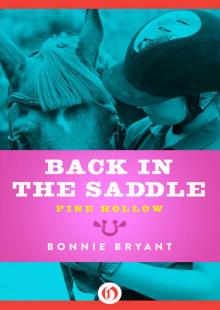 Back in the Saddle
Back in the Saddle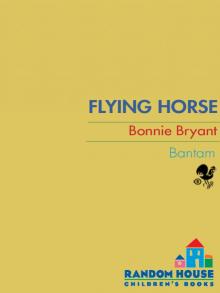 Flying Horse
Flying Horse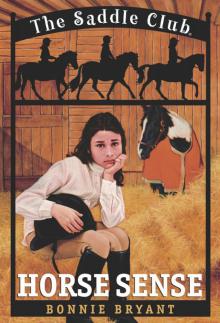 Horse Sense
Horse Sense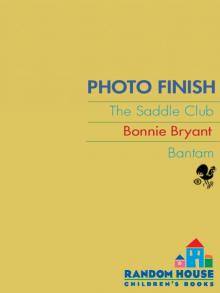 Photo Finish
Photo Finish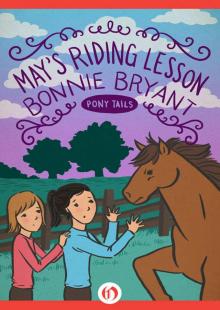 Pony Tails 02- May's Riding Lesson
Pony Tails 02- May's Riding Lesson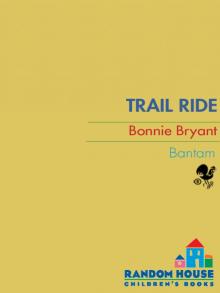 Trail Ride
Trail Ride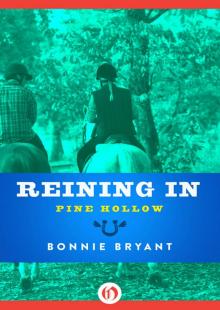 Reining In
Reining In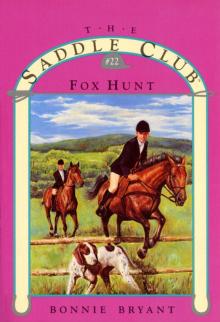 The Fox Hunt
The Fox Hunt Show Judge
Show Judge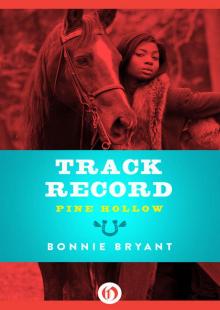 Track Record
Track Record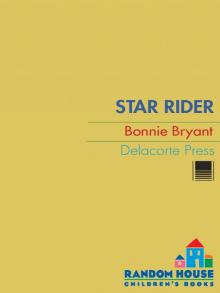 Star Rider
Star Rider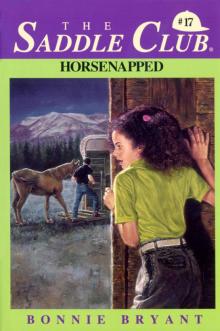 Horsenapped!
Horsenapped!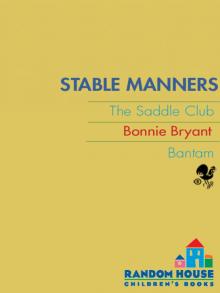 Stable Manners
Stable Manners Show Jumper
Show Jumper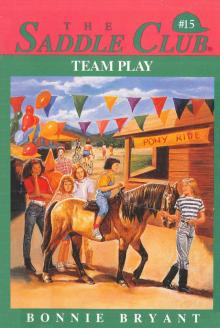 Team Play
Team Play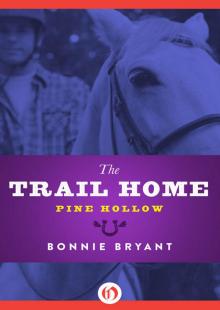 The Trail Home
The Trail Home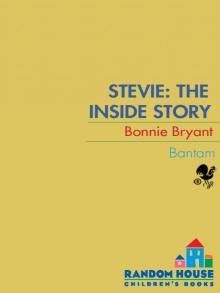 Stevie
Stevie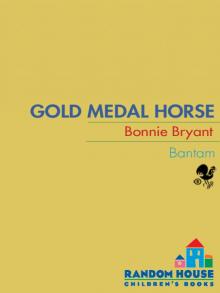 Gold Medal Horse
Gold Medal Horse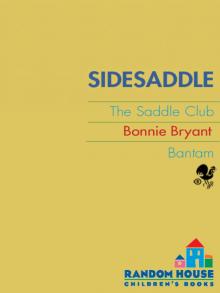 Sidesaddle
Sidesaddle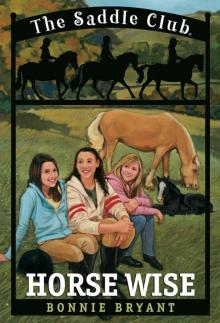 Horse Wise
Horse Wise Course of Action
Course of Action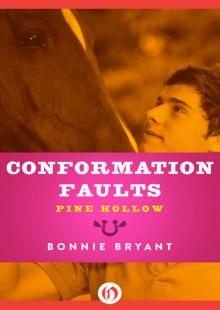 Conformation Faults
Conformation Faults